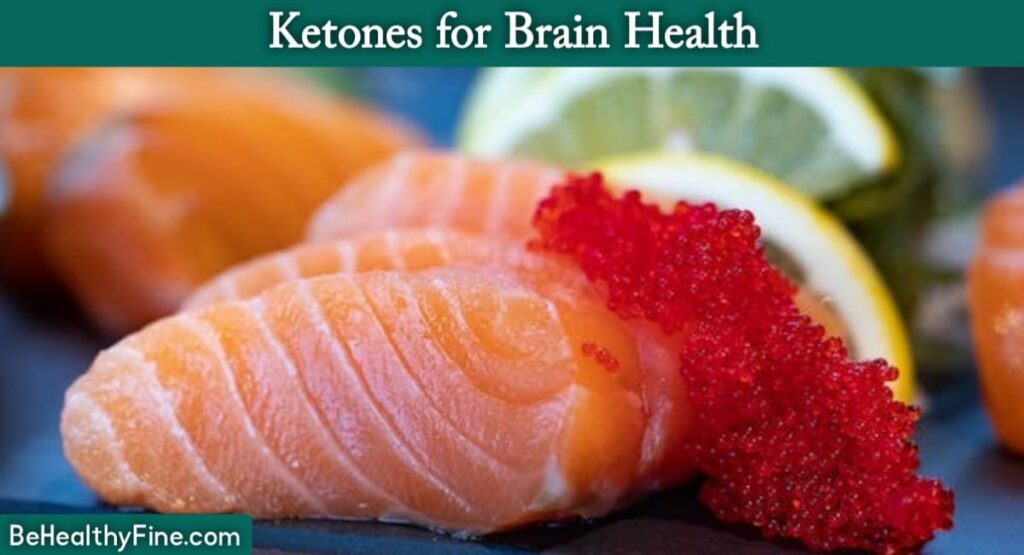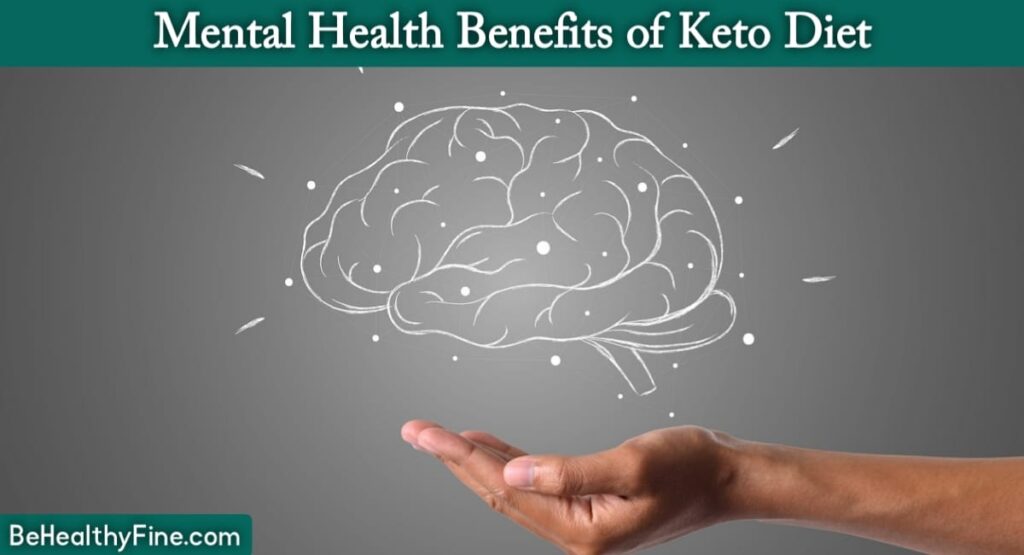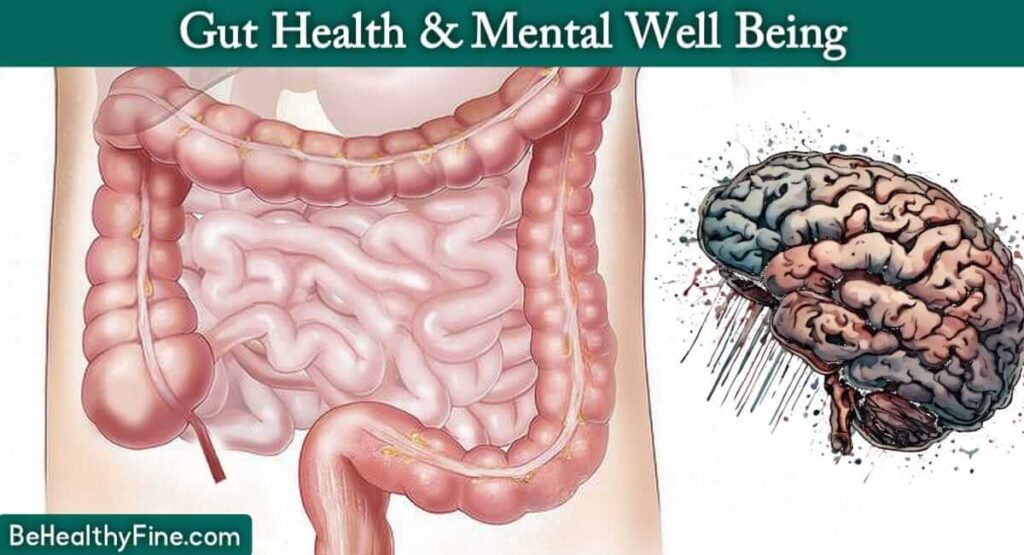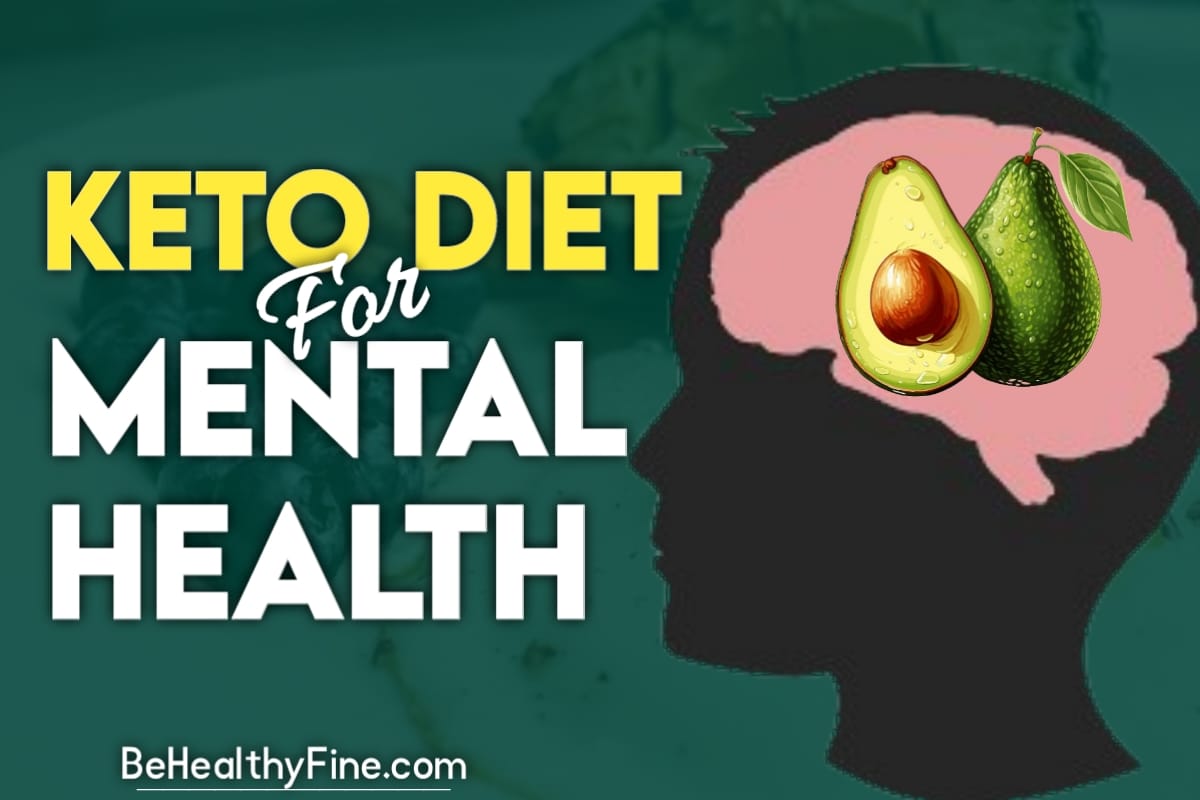In today’s busy world, taking care of our mental health is very important. Life can be stressful, and it’s easy to feel anxious or down sometimes. We frequently depend on therapy and medication to improve our well-being.
but new studies show that what we eat can also affect how we feel. One diet that’s getting a lot of attention for possibly helping with mental health is called the ketogenic (keto) diet. so in this article we will talk about Keto Diet For Mental Health
What is Keto Diet
The ketogenic (keto) diet is a way of eating that emphasizes foods high in fat, moderate in protein, and low in carbohydrates. It was first developed in the 1920s to help treat epilepsy, but it’s now known for more than just controlling seizures.
Many people who follow the keto diet say they experience weight loss and better brain function as some of its benefits. But what about its impact on mental health?
In this article, we’ll talk about how the keto diet might help improve mental health and look at how its specific mix of nutrients could support a healthier mind.
Stabilizing Blood Sugar Levels
The ketogenic keto diet focuses on maintaining stable blood sugar levels. By reducing carb intake and increasing fat consumption, this diet prevents the fluctuations in blood sugar that can affect mood and energy levels.
Rather than relying on carbs for energy, the body shifts to burning fat, including ketones produced in the liver, during a state known as ketosis.
This consistent energy source can promote a sense of balance and prevent sudden crashes that lead to fatigue and irritability. [Perfect Keto Diet Plan]
Increased Ketone Production

When you’re following the keto diet, your body produces more ketones. These are compounds created when your body breaks down fat for energy while in ketosis. Ketones are neat because they can safeguard your brain and serve as an additional energy source for it.
Some research indicates that having higher levels of ketones in your body could enhance brain function and contribute to emotional stability. This could mean experiencing sharper thinking and a more consistent mood.
So, by increasing ketone production, the keto diet might offer potential relief from symptoms of mood disorders such as depression and anxiety.
Keto Diet For Mental Health
While research is still ongoing, there’s some interesting evidence suggesting that the keto diet might offer benefits beyond just weight loss. By stabilizing blood sugar levels and increasing ketone production, this diet could potentially improve mood and cognitive function.
Ketones, the brain’s alternative fuel source during ketosis, may have neuroprotective properties and enhance neurotransmitter activity, which could lead to clearer thinking and a more balanced mood.
Additionally, the keto diet’s anti-inflammatory effects and positive impact on gut health may indirectly support mental Health. [Perfect Keto Diet Plan]
Neurological Benefits Of Keto Diet

Ketones don’t only provide energy to the brain; they can also affect how it functions and the chemicals it uses to send messages. Studies suggest that ketones might increase the production of neurotransmitters like serotonin and dopamine, which are important for controlling mood.
By tweaking these neurotransmitter levels, ketones could help lift mood and boost overall mental health. This shows that the keto diet might have more benefits for the brain than just giving it energy.
While we still need more research to fully grasp how ketones impact brain function, these discoveries suggest that the keto diet could be good for mental well-being.
Related Article : The Best Diet For Beginners (2024)
Related Article : Solution to Stop Depression
Inflammation Reduction:
Chronic inflammation is connected to mental health problems such as depression and anxiety. Certain studies propose that the ketogenic (keto) diet can reduce signs of inflammation, which could potentially alleviate the inflammation associated with mood issues.
By addressing inflammation at a cellular level, the keto diet might provide additional benefits for mental well-being, in addition to its impact on blood sugar and ketone levels.
While further research is necessary to fully grasp how the keto diet affects inflammation and mental health, these discoveries suggest its potential as a strategy for promoting emotional wellness.
Epilepsy Treatment with Keto Diet
The ketogenic (keto) diet has been used for a long time to help treat epilepsy, especially when other treatments haven’t been effective. Doctors have been prescribing the keto diet to people with epilepsy for many years, and research shows that it can help reduce how often seizures happen and how bad they are.
Since epilepsy affects the brain, the good results seen with the keto diet in controlling seizures hint at other possible benefits for brain health, like improvements in mood and mental well-being.
While more research is needed to fully understand how the keto diet, epilepsy, and mental health are connected, these findings suggest that the diet could give hope to people dealing with both epilepsy and mood problems.
Connection Between Gut and Brain

Recent research has highlighted the strong link between gut health and mental well-being. The ketogenic (keto) diet could be involved in this connection by potentially changing the types of bacteria in the gut, which might affect how the gut communicates with the brain. [Perfect Keto Diet Plan]
This communication pathway, called the gut-brain axis, could indirectly impact mood and thinking abilities. By promoting a healthy balance of gut bacteria, the keto diet might contribute to better brain health and overall mental wellness.
While more research is necessary to fully understand how the keto diet affects the gut-brain axis and mental health, these findings suggest another possible way to support emotional well-being through dietary choices.
Conclusion
While the keto diet could have mental health benefits, it’s important to be careful when making dietary changes. The keto diet might not be right for everyone, and how you react to it can be different from others.
Some people may experience initial side effects like “keto flu” or difficulty with cognitive function during the adaptation phase. Plus, sticking to a very low-carb diet like keto for a long time can be tough and might not give you all the nutrients you need.
It’s smart to talk to a healthcare provider or dietitian before trying big diet changes, especially if you have health issues or take certain medications that could be affected by keto. Checkout This Best Customize Keto diet program [Perfect Keto Diet Plan]
while more research is needed to fully understand the relationship between the keto diet and mental health, preliminary evidence suggests that it may offer several potential benefits, including stabilized blood sugar levels, increased ketone production, neurological effects, inflammation reduction, epilepsy treatment, and modulation of the gut-brain axis.
By incorporating the principles of the keto diet into a balanced and individualized nutrition plan, individuals may be able to support their mental health and start their healthier, happier life.







